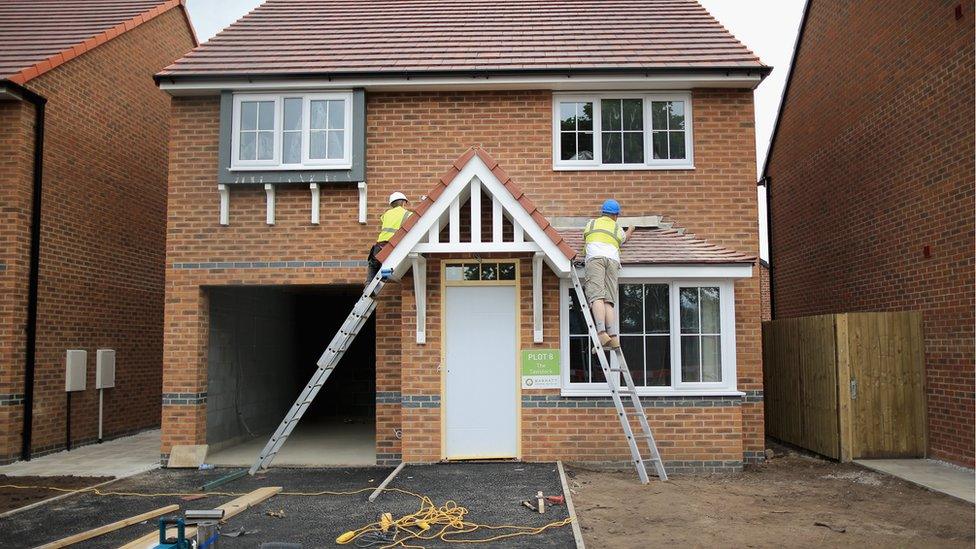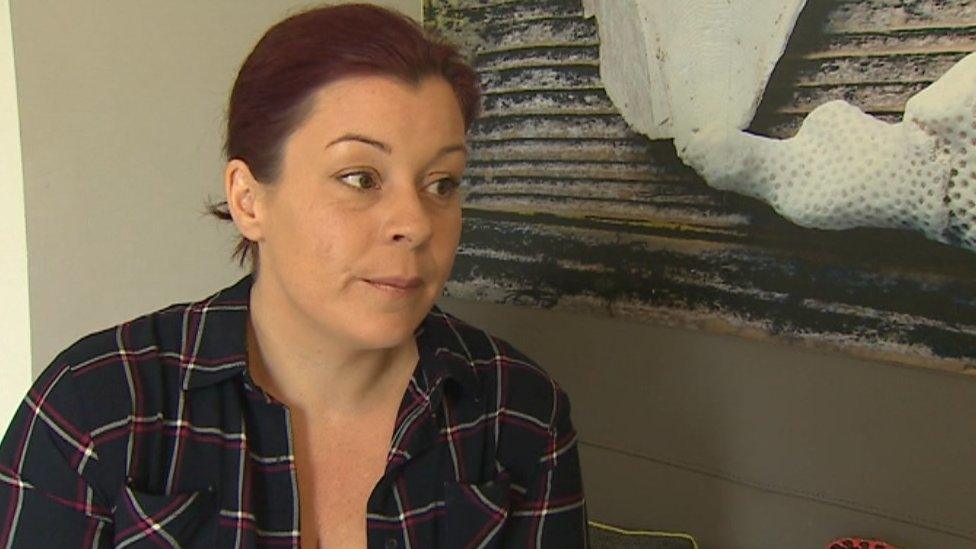Leasehold properties 'not explained' to house buyers
- Published
- comments

Owners of leasehold properties could be compensated after the terms of their purchases were "not explained" to them by solicitors, a legal expert says.
Some owners have said they may not have bought their houses because leaseholds "can put you in financial ruin".
A number of legal firms are investigating cases across Wales and England, and one solicitor feels it "may be bigger than the PPI scandal".
Developer Persimmon, which sold some of the houses, has declined to comment.

Tony Morris says the terms of his leasehold were not made clear to him by solicitors
Tony Morris became one of 6,685 people to have bought a leasehold house in Wales since 2012 when he leased a property in Gorseinon, Swansea, built by Persimmon, to who he pays a £150 annual ground rent fee.
"None of this was explained to me, such things as the lease would go up every ten years, such things as we could buy it back in two years and it was going to be 25 times the [ground] rent," he said.
"It wasn't pointed out to me. I was just told it was a standard lease, no problem nothing to worry about, a long lease - 999 years.
"I asked the solicitor if I could buy the lease and the answer was 'I think so, in about two to three years'. I said what's it likely to cost, she said 'a few hundred pounds, I think'. There was nothing definite."

What is a leasehold?
Someone who owns a property outright, including the land it is built on, is a freeholder
In a leasehold, a person buys the lease to a property from the freeholder
They have the right to live in the house, but must pay ground rent and other fees
The leasehold owners must get permission from the freeholder to make changes to the house
Non-payment of fees will mean a landlord can apply to seek to forfeit the lease at any point
When the lease ends, the property returns to the freeholder unless the person can extend the lease

It is a similar story for Jody Murphy, who bought a leasehold house from Persimmon in Deeside, Flintshire, in 2016.
"We didn't realise the implications of what a leasehold was and that was never explained to us. If someone explained to us you need to pay this £150 a year and then potentially down the line we can put you into financial ruin, then we might not have bought it," she said.
"I think when something like this happens and you realise the massive implications it has, not just on your finances but on people's health as well because it is a big worry. It makes you lose faith in humanity a little bit that people are willing to go out there and do this to other people."

Jody Murphy says she may not have bought her leasehold property if she had more information
Martyn Anderson, a solicitor at FS Legal, said: "We think the scale is vast. We feel it's going to be bigger than the PPI scandal. I know a couple of MPs have used that phrase in Parliament. There are approximately 100,000 leasehold properties that we are looking at.
"A lot of it seems to be concentrated around Manchester, Liverpool, Wales. These types of areas where there are real working class people who work hard to buy their first property and essentially they might find it difficult in the future to sell this property on.
"We feel confident we can pursue the professional advisers these people rely on who have essentially given them bad advice. And if they've given them bad advice they have a duty to compensate for that negligence."
The Housing, Communities and Local Government Select Committee is currently holding an inquiry into the UK government's leasehold reform programme.
Earlier in 2018, the Welsh Government's Housing Minister, Rebecca Evans, set-up a task group to consult on issues surrounding the sale of leasehold properties. Ms Evans said the Welsh Government will also engage in the Law Commission's project on leasehold reform.
Beth Rudolf, of the Conveyancing Association, said: "The professional codes of conduct for all property lawyers require that conveyancers and solicitors act in the best interests of their client. This will include explaining the content of the lease and contract terms."
The Solicitor Regulations Authority said it had only received "a handful of complaints" since concerns about leasehold contracts were raised with the UK government about 14 months ago.
- Published7 September 2018

- Published6 March 2018
